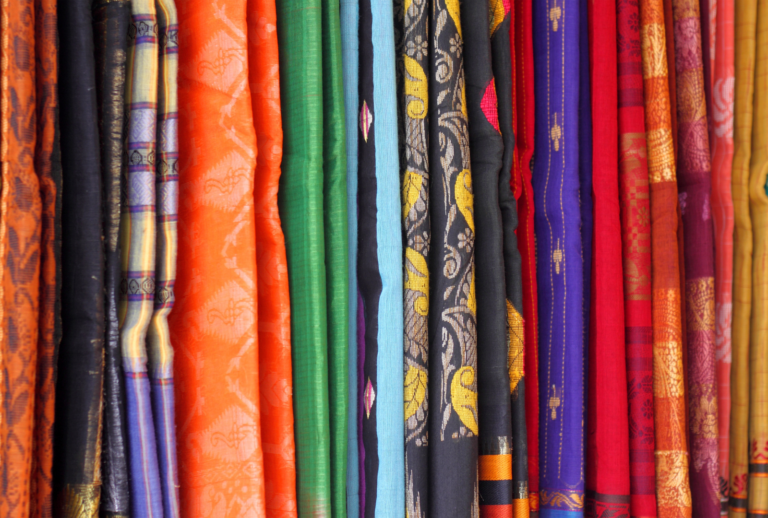About the Author :
Shoba Narayan is the author of five books. As a journalist and columnist, she writes about health, relationships, travel, food and culture for global publications, winning a James Beard award and Pulitzer Fellowship. She has taught and lectured at universities in India (IIM-B and IISc) and abroad. She is the host and anchor of Bird Podcast: about birds and nature. She enjoys wine, studies Jung and is a gadget geek. Her lifelong mission is to get fit without exercising and lose weight without dieting.

In my thirties, I used to gather with a group of friends. We were young families with kids the same age. We called our group Saregama because we loved Indian music. We had a pot-luck lunch once a month at each other’s homes, ate, sang and talked. The most frequent topic of discussion was how much we needed to save in order to retire. We made plans, drew up graphs, calculated monthly expenses and then projected it forward. But here’s what we learned: one man’s (or woman’s) idea of wealth could be another’s idea of merely adequate.

“Yaar, we have to travel first class when we retire,” said one and added on a hefty amount to the tally. Not all of us agreed with this statement—even business class was aspirational to us—but couldn’t say anything lest we came across as cheap.
Money, you see, is not a number. It is a feeling. So no, this is not an article about how much money you need for retirement. By some accounts, you need 30x of what you spend per month for retirement. Money is also subjective. When I typed “How much do I need for retirement?” on Google, a whole slew of specifics came up: “Is 4 crore enough to retire in Bangalore?” “Is 50 lakhs enough to retire in Gurugram?” For some, 4 crore is a princely sum, enough to retire on. For others, it is piddling money. For most of us, the target amount of what our net worth should be grows as we grow older. So I say—each of you decide what you need to retire. This piece is about suggesting how to spend what you have saved.

Turns out that there is a science to spending money and numerous sociologists have studied it. In her book, Happy Money, social psychologist Elizabeth Dunn talks about how to spend rather than how much to save. Some of what she says is either intuitive or counterintuitive depending on your stage in life. “Pro-social” spending, or spending on others, it turns out, increases your happiness. Treating your friend to dinner or coffee is a way to increase—not their happiness but yours, she says. I wish I could have told my younger self this and spared her countless hours of angst. When I was young, sharing money equally between friends was a big deal. Going to dinner involved complex calculations over who drank and who didn’t and then working out ratios of spending. I wish I had known that with all our education, this type of nit-picking would become irrelevant to our friendship. Money comes and money goes, they say, but when you are young, you track everything, especially the going. But for those of us over 50, we have the luxury of savings. So why not start taking people we like out for a meal or a drink?

Many small spends are better than single large spends. I think of this when I look at my saree collection. I love Indian weaves and have accumulated lots of expensive sarees. In this, I am not alone. I know women who own designer sarees that cost a few lakhs. The thing with expensive fashion or jewellery though is that the per-time use of these objects is not as much as it should be. Plus you stress over them, cannot share them, and hesitate to give them away, all of which my mother does. Her sarees don’t cost over Rs. 2000. She wears them happily, lends them to relatives, doesn’t stress if coffee spills on them, and happily gives them away to our building staff after she gets bored with them. I feel that I should follow her example. Instead of spending 15K per saree, maybe reduce the spend?

The other tip given by many studies is that buying experiences rather than objects is the way to go. You may love to buy watches or homes, but the principle of “diminishing returns” will tell you that the minute you buy an object, its value goes down, both economically and psychologically. You may long for that Benz car or Rolex watch. You may save up to buy it. And you will enjoy it, but not as much as that vacation you take with your family. So if you have Rs. 8 lakhs to spend on that Rolex watch, maybe ditch the watch and take your family to Africa instead.

Use money to buy time. We all do this in India. We hire maids to help us at home, drivers to ferry us, and Dunzo to send stuff. Do more of this. The luxury of age is that we can outsource chores. Pay that expensive accountant if it will mean that you don’t need to do those taxes you hate. Heck, at least buy one of those floor-cleaning i-robots if you don’t want to let your maid into your study. Gadgets, apps, employees, get help. Outsource. Delegate. Because you can afford to (finally).

There are numerous studies that will help you think about how to spend. A simple rule is to look inward. Look for patterns of spending that foster well-being and patterns of spending that don’t. In my own life, I spend a lot on online classes. I have paid $200 for a “masterclass” on writing. I learnt to draw with an online “skillshare” app. All of these add up but at the end of the day, they keep my mind active. I feel that these classes are money well spent. Jewels on the other hand, at least for me, is money badly spent because they give me tension rather than pleasure. Sure, there is the moment when you wear them at weddings and win compliments. But mostly, they sit in a safe-deposit box. I now have to decide how to deal with my love for gems. Do I stop buying them? Reduce and reuse? Or switch to costume jewellery?
Money, it turns out, can buy happiness, but only if you know how to spend it.
Read more blogs by Shoba Narayan on WisdomCircle.






